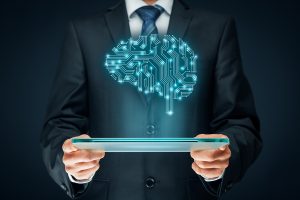 Blockchain technology is a new way of passing information from point A to point B. The data passes through a "block" that gets validated by a network of unrelated computers, and democratizes the transfer of data. This creates a transparency for the path of the data and makes that path irreversible. It also allows for computational logic to be attached to data, enabling automation around actions associated with it.
Blockchain technology is a new way of passing information from point A to point B. The data passes through a "block" that gets validated by a network of unrelated computers, and democratizes the transfer of data. This creates a transparency for the path of the data and makes that path irreversible. It also allows for computational logic to be attached to data, enabling automation around actions associated with it.
Organizations across government have been experimenting with ways blockchain technology could make transactions more efficient, secure, and transparent. With the COVID-19 pandemic the ability to easily, securely, and transparently share data has never been more important. In the many areas of our lives affected by the pandemic, blockchain is proving to be a tool for meeting the quickly evolving demands of public health, financial markets, and even democracy itself.
- Information Sharing - A project named MiPasa, backed by IBM, looks to address the lack of integration of verified data that can be used with confidence by clinicians, scientists and researchers. For example, public health officials and individuals can upload data regarding infections. The data is then stripped of personally identifying information permitting it to be used to calculate risk exposure to help hospitals plan resources and inform individuals about the criticality of getting a test. The distributed ledger allows multiple parties to collaborate on the validity of the updated data.
- Response - The Blockchain Caucus of the U.S. Congress urged the use of blockchain early on in the pandemic. They saw value in using it to authenticate the identity of individuals receiving funding or supplies, managing supply chains, and validating medical licenses.
- Recovery - Blockchain can be used to issue payments and track use of relief funds. The technology has been looked at by grant making organizations to reduce the administrative cost and burden of applying for and reporting on grant funds. The nature of the chain allows for a granting organization to track the grant payments and ensure that the terms of the grant are being followed without grantees having to develop and issue reports.
While not directly related to, but greatly impacted by COVID, voting in the 2020 election will look a lot different with greater use of mail-in ballots. Blockchain technology will likely not play a big role in the upcoming election, but groups are experimenting with how it could enable digital voting or secure mail-in voting for future elections.
The U.S. Postal Service filed a patent application in February for a blockchain-based secure absentee voting system that would "use the security of blockchain and the mail to provide a reliable voting system." In this scenario, a registered voter would receive a computer readable code in the mail and be asked to confirm their identity and verify ballot information. The system separates voter identification and votes to ensure anonymity, and stores votes on a distributed ledger in a blockchain.
A step further would be electronic voting, a practice that cybersecurity experts are wary of. Arizona, Colorado, Missouri and North Dakota allow some voters to return ballots using a web-based portal. This practice could be further secured with blockchain. In fact, Utah County, Utah, and the city of Denver are piloting a mobile app for military and overseas workers that leverages blockchain.
To learn more about blockchain and participate in discussions of its application in a COVID and post-COVID world check out some of these upcoming events.
- Emerging Technology Forum 2020 (November 4-5, 2020; virtual) - A collaboration between ACT-IAC and the Federal Mobility Group that includes GSA, DoD, and DHS--this forum will look at how to leverage technologies like 5G, blockchain, AI, and more for better outcomes in government.
- Security Transformation Summit (November 12, 2020; virtual) - Public and private sector leaders will discuss emerging cybersecurity trends like Zero Trust network security, AI-driven security operations and securing the cloud. They will talk about how these technologies support the pandemic-induced "new normal."
- FCW Workshop: Health IT (December 2, 2020; virtual) - This workshop will show how new technologies are transforming health initiatives and the challenges that scientists, physicians and program owners are addressing. There will be discussion about the use of machine learning to mine health records for discovering new signs of undetected diseases and the use of blockchain to protect them.
- CDM Central: Cyber Defenders Assemble (December 3, 2020; virtual) - With a superhero theme, this event will bring together security experts to discuss how to thwart malicious threats in real time and build lasting cyber resiliency. Speakers will discuss cyber issues and initiatives including how cyber defenders are ramping up CDM capabilities to protect High Value Assets (HVAs), defending the perimeter, building cyber strength, preparing the workforce, and more.
We'd like to hear where you are planning on learning about blockchain's applications for security and efficiency. Share your thoughts in the comments.
Be sure to check out GovEvents for a complete listing of virtual seminars, training, roundtables, webinars, and a library of on-demand events.




